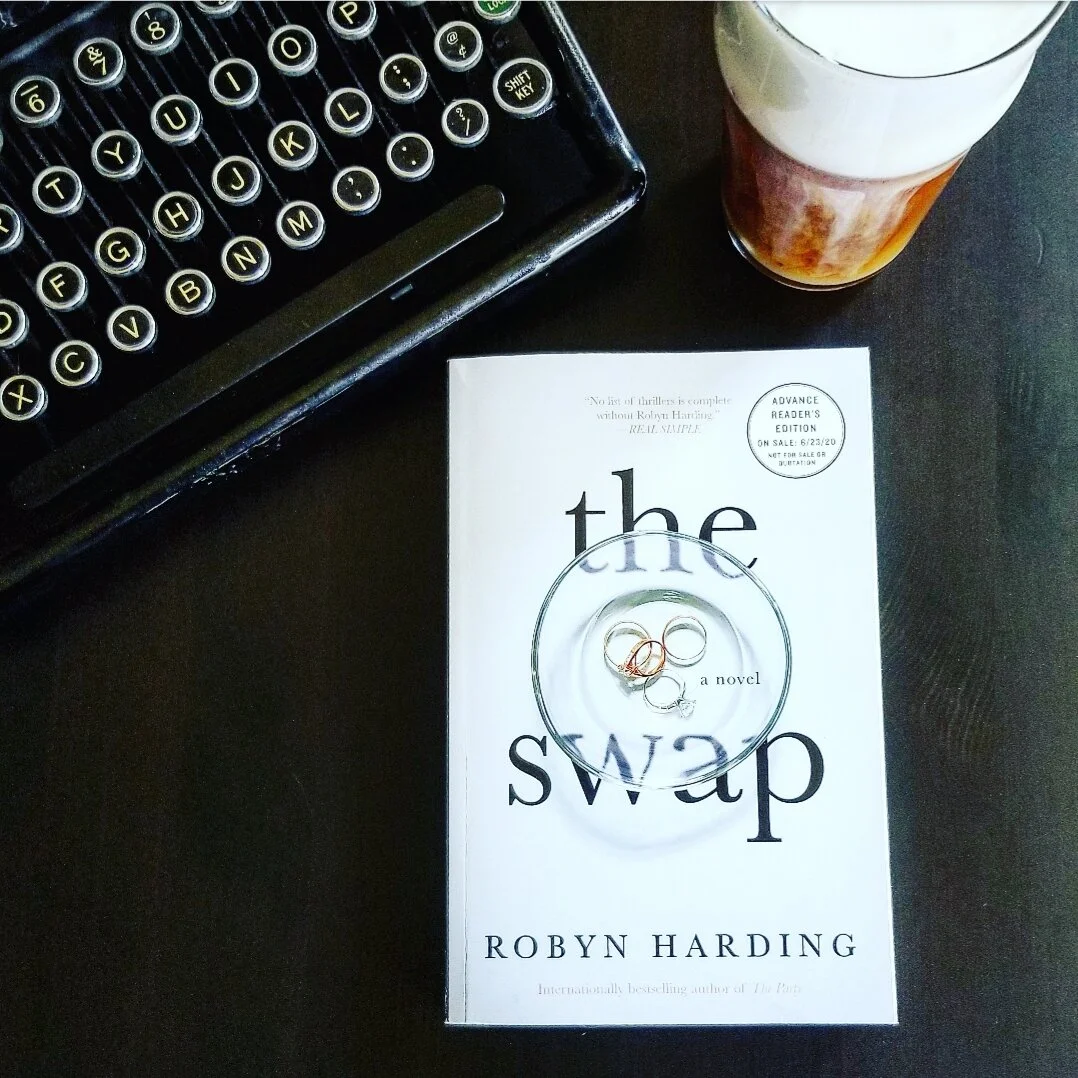REVIEW: "The Turn of the Key" by Ruth Ware
For someone who has worked in education for a decade and a half, I have a surprising distaste for children.
I mean, don’t get me wrong.
I care about them.
I want them to be safe
I want them to be successful.
I just don’t want to spend an unduly long stretch of time with them.
Particularly very young children. Children who are too young to recognize — let alone wipe — that string of snot that seems to perpetually hang from their noses. Who need help undoing and redoing their snaps and buttons when they need to go to the bathroom. Who cry at the drop of a hat about literally fucking nothing.
When I went to college, I selected a grades 7-12 certification specifically because I knew I lacked the patience, the care, the maternal instinct to deal with the littlest of students.
I wanted fully formed humans. Capable of sitting in seats and attending to their own bodily functions. I wanted to focus on literature, not on potty training.
Given that I don't even like the thought of spending a 45 minute class period with little kids — let alone a 24 hour day — the job for which our protagonist applied at the start of this newest work by Ruth Ware — acting as a live-in nanny for two youngsters and baby in a secluded mansion in Scotland — would hold zero appeal for me.
Whether our protagonist, Rowan, liked children or not, she certainly had more than enough experience with them to recommend her for this job. So she, daunted by neither the seclusion nor the heavy workload, applied.
Much to her initial delight, she’s selected from what must have been a sizable pool of candidates, to fill the post.
When Rowan arrives, however, she isn’t given long to settle in. Her new boss, Sandra — who co-owns an architectural firm with her husband, Bill — informs Rowan that she will be left alone with the children the very next day. As it would turn out, Sandra and Bill have burned through a series of nannies in the last year or so, making it difficult for the couple — really, for Sandra — to keep up with the rigors of work.
Eager to make a good impression, Rowan keeps the reservations she has about their imminent departure to herself and tries her best to cozy up to the children who will soon be in her solo charge.
As you would likely expect, things don’t immediately go swimmingly. Maddie and Ellie, the two older children, don’t warm to Rowan quickly, making tending to them while handling a baby difficult — Read: Totally fucking impossible.
But the unruliness of the children isn’t Rowan’s only problem.
Another complication presents at night, long after the children have been tucked into their beds, while Rowan is trying to partake in a hard-earned period of rest.
From the evening she arrives, Rowan’s nights are restless. Under the cloak of darkness — when all is quiet and still and the world is at its most creepy — strange things keep happening.
The nights — which should be quiet in this rural house — are full of sounds that can’t be explained. Rich in occurrence for which these are no logical explanations.
As the days pass, Rowan’s relationship with the girls seems to strengthen, but her concerns only continue to grow.
Something is going on in the house, she knows, but she doesn’t know what. The only thing of which she is certain is that the situation is becoming more dire with each passing day. It’s urgent, she feels, that she find out who — or what — is causing the nightly disturbances. For, if she doesn’t, there could be deadly consequences.
As is typically a strength of Ware’s, the setting — an old, Gothic, estate that is as impressive as it is intimidating — was extremely well established in this novel.
The robustness of Ware’s setting likely had more of an impact than it normally might as, in this novel, the setting was particularly integral to the story. This story simply could not have taken place anywhere else. You couldn’t set it in a bustling city or even a cozy suburb. The fear and isolation Rowan felt — the fish-out-of-water-gasping-for-oxygen panic — simply couldn’t have overtaken her in the same way in another setting. By building such a realistically intimidating world, Ware allowed her readers to feel Rowan’s fear and enhanced the impact of the novel.
Another definitive strength of this novel was the point of view. As readers absorbed this first-person recounting of the admittedly horrifying events that day-by-day, minute-by-minute, drove Rowan to distraction, they felt as if they were in Rowan’s shoes. As if they were just as trapped as she was.
On the whole, this novel was strong and memorable and — without overstating it — an exemplary example of a Gothic mystery. But it wasn’t entirely without fault.
Though the end of the novel was undeniably compelling — inarguably unputdownable — I struggled to become invested in the tale at the start.
As Ware laid the groundwork for the novel, establishing the characters and setting up her story, there was a noticeable lag. Were I not eager to get to the meat of what I was sure would be another satisfying Ruth Ware novel, I would have likely languished in the first 10 chapters for an extended period of time. As it was, even with my natural drive to read this book, I found myself easily setting it aside and busying myself with other tasks on the first day or two of my read.
Despite this weakness, however, I must admit that I discovered something while reading this book.
As I hungrily neared the conclusion, I began to realize that, in truth, my feelings for small children can’t be appropriately described as distaste.
I mean, sure, the snot thing is gross and they do throw up more often — and more spontaneously — than any human should. But I think, at the core, my feelings of discomfort stem from a lack of confidence.
An only child with hardly any family, I have exceptionally limited experience with small children.
And, as someone with a perfectionistic streak, I think this lack of experience, lack of confidence, has resulted in my not wanting to be around them at all.
Not trusting myself.
Not believing in myself.
Feeling that I will make a seemingly minor misstep that will have dire consequences.
And, one thing that I can say for sure is that this novel has done nothing to assuage these fears.
Instead, it has amplified them.
Because this book reminded me of their fragility.
Their vulnerability.
Their dependence.
All of which is way scarier than any bump in the night.
This chilling, atmospheric mystery is Ware's strongest effort to date.
It earns 4 out of 5 cocktails.
Ruth Ware is a must-read author for me. And, given the strength of this novel, I don’t see that changing. Are you a Ware fan? If so, which of her books is your favorite? Tell me about it in the comments, below.
And moving right along. To see what’s up next, follow me, here
* Drink. Read. Repeat. is a participant in the Amazon Services LLC Associates Program, an affiliate advertising program designed to provide a means for sites to earn advertising fees by advertising and linking to Amazon.com. As an associate, we may earn commissions, at no cost to you, from qualifying purchases on Amazon.com










